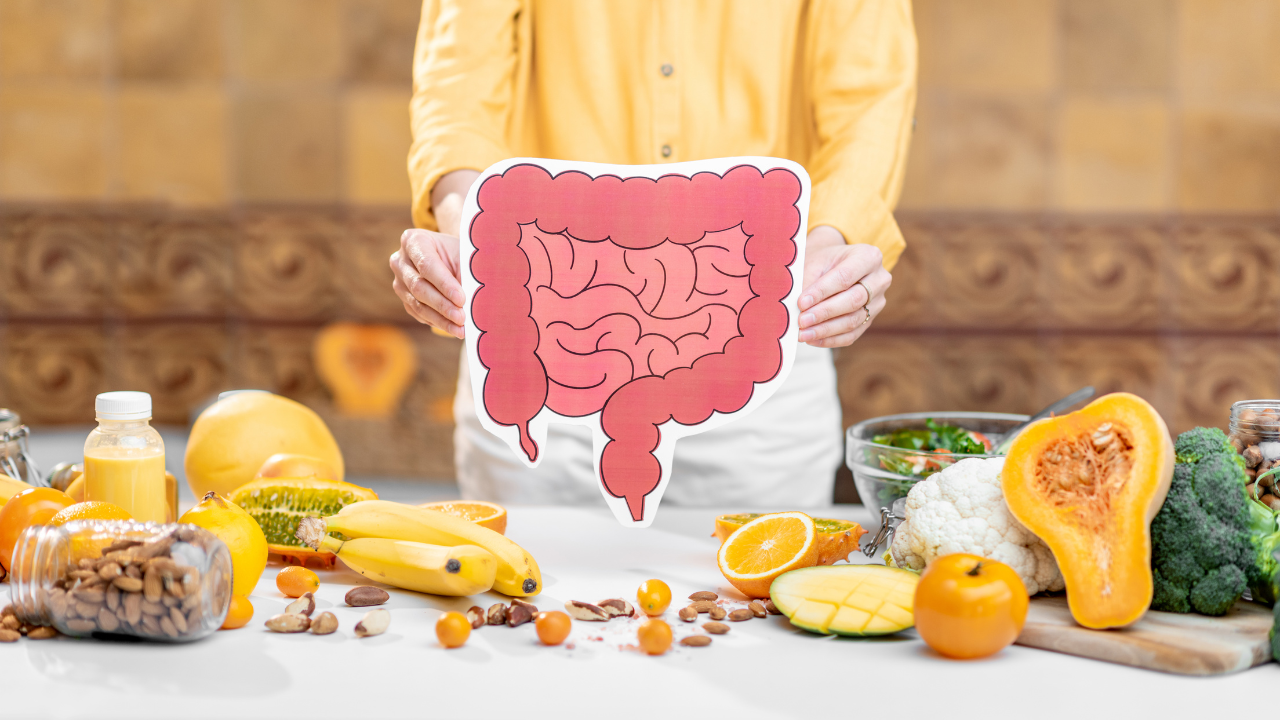The Gut-Brain Axis: How Gut Health Affects Mood and Cognition
Nov 21, 2024
Hey!
Today, we’re going to explore the connection between gut health and mental health! The gut-brain axis represents the bidirectional communication between the gut microbiota (normal, natural bacteria in your gut) and the brain, influencing mood, cognition, and overall mental health. By understanding this intricate relationship, we can harness the power of gut health to support emotional resilience and cognitive function. Let’s explore how gut health impacts mood and cognition through the gut-brain axis.
Understanding the Gut-Brain Axis
The gut-brain axis refers to the complex communication network between the gastrointestinal tract (the gut) and the central nervous system (the brain). This bidirectional pathway involves neural, endocrine, and immune signaling mechanisms that impact:
- Neurotransmitter Production: The gut microbiota produce neurotransmitters such as serotonin, dopamine, and gamma-aminobutyric acid (GABA), which play key roles in mood regulation and cognitive function.
- Inflammation and Immune Response: Imbalances in gut microbiota can lead to systemic inflammation and immune dysregulation, which are associated with mood disorders such as depression and anxiety.
- Hormone Regulation: Gut microbes influence hormone production and metabolism, including stress hormones like cortisol, which affects stress response and mood stability.
Impact of Gut Health on Mental Health
Optimal gut health is essential for maintaining mental well-being. Here’s how gut health influences mood and cognition:
- Serotonin Production: Approximately 90% of serotonin, a neurotransmitter crucial for mood regulation, is produced in the gut. A healthy gut microbiota supports adequate serotonin production (and other building blocks needed for serotonin production within the brain itself), promoting positive mood and emotional resilience.
- Inflammation and Mood Disorders: Dysbiosis (imbalanced gut microbiota) and intestinal permeability (leaky gut) can contribute to chronic inflammation, which is linked to the development of mood disorders such as depression and anxiety.
- Cognitive Function: Gut health affects cognitive processes such as memory, learning, and decision-making through its impact on neurotransmitter activity and inflammation levels.
Supporting Gut Health for Mental Well-Being
Promoting a healthy gut microbiota is key to supporting mental health. Here are practical strategies to enhance gut health:
- Dietary Fiber: Consume a variety of fiber-rich foods such as fruits, vegetables, whole grains, and legumes to nourish beneficial gut bacteria.
- Probiotics and Prebiotics: Incorporate probiotic-rich foods (yogurt, kefir, sauerkraut) and prebiotic foods (garlic, onions, bananas) to support a diverse gut microbiota.
- Limit Sugar and Processed Foods: Reduce intake of refined sugars and processed foods, which can disrupt gut microbiota balance and promote inflammation.
- Manage Stress: Practice stress management techniques such as mindfulness, yoga, and adequate sleep to support gut-brain axis function.
Moving Forward: Embracing Gut-Brain Health
By nurturing healthy gut bacteria, you can support emotional resilience, cognitive function, and overall mental well-being. Embrace the connection between gut health and mental health to optimize your holistic health journey. And probiotics are not the answer 🙂
Join the Conversation
I’d love to hear how gut health has impacted your mood and cognition. Share your favorite gut-healthy foods, tips, or questions in the comments below or connect with me on Instagram @rethinkwellness_w_jeni.
With lots of love
Jeni Steger, PA-C
Stay connected with news and updates!
Join our mailing list to receive the latest news and updates from our team. Mostly just to notify you of a new blog post! And don't worry, your information will not be shared.
We hate SPAM. We will never sell your information, for any reason.
